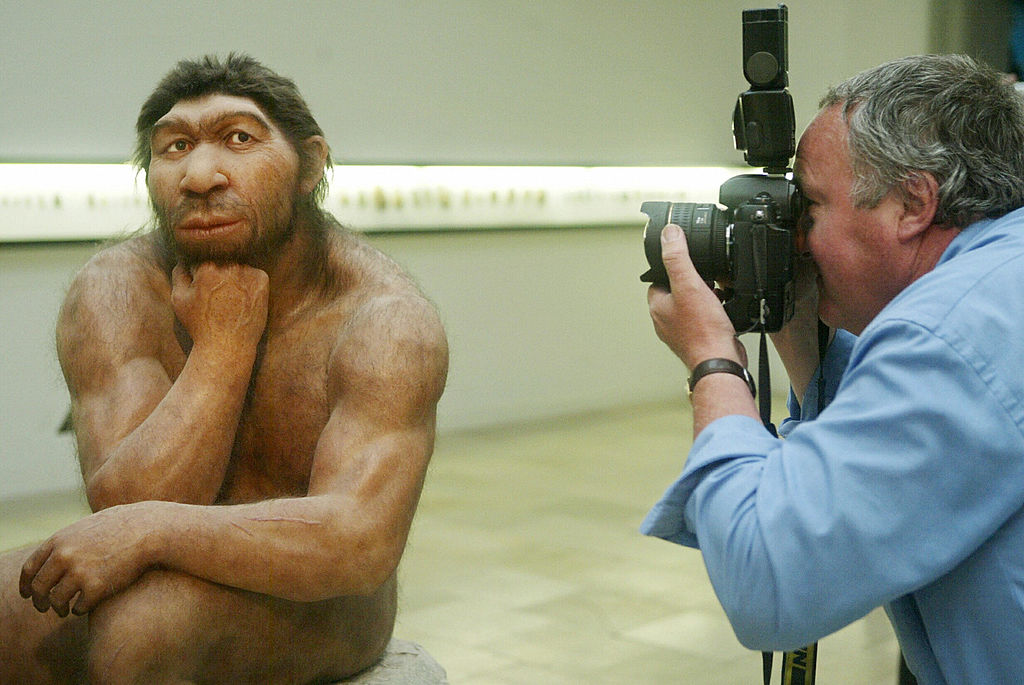Neanderthal DNA may be affecting the way some humans sleep


A free daily email with the biggest news stories of the day – and the best features from TheWeek.com
You are now subscribed
Your newsletter sign-up was successful
Thousands of humans may still be walking the Earth with Neanderthal DNA — and not only that, but traces of the ancient stuff may be influencing skin tone, hair color, and even sleeping patterns in present-day Europeans, a study released Thursday from the Max Planck Institute for Evolutionary Anthropology found.
Using the genetic information of over 100,000 people in the U.K. Biobank, scientists discovered that Neanderthal genes, which make up 1 to 3 percent of the genetic code of people with European descent, may still have a small effect on some physical traits. No trait can be isolated to a particular gene; multiple genetic factors affect skin tone, for example, and Neanderthal genetic material only plays one part in determining the tone. But breakthroughs in researching Neanderthal DNA may help scientists understand how some genetic traits function.
Most interestingly, Neanderthal DNA has been linked to traits associated with light exposure like circadian rhythms, meaning the ancient genes may affect how people sleep in current times. Neanderthals had greater exposure to UVB rays while living on Eurasia for 100,000 years before they mated with Homo sapiens, so they had "more time to get used to a wider range of daylight," NPR explains.
The Week
Escape your echo chamber. Get the facts behind the news, plus analysis from multiple perspectives.

Sign up for The Week's Free Newsletters
From our morning news briefing to a weekly Good News Newsletter, get the best of The Week delivered directly to your inbox.
From our morning news briefing to a weekly Good News Newsletter, get the best of The Week delivered directly to your inbox.
Scientists believe that people indigenous to Africa do not have Neanderthal DNA in their genetic code because their ancestors never migrated to Eurasia. The study is limited because the sample size did not extend beyond the U.K. Biobank, but researchers hope to gain access to other biobanks and databases in the future. Read more about the study at NPR.
A free daily email with the biggest news stories of the day – and the best features from TheWeek.com
Elianna Spitzer is a rising junior at Brandeis University, majoring in Politics and American Studies. She is also a news editor and writer at The Brandeis Hoot. When she is not covering campus news, Elianna can be found arguing legal cases with her mock trial team.q
-
 6 of the world’s most accessible destinations
6 of the world’s most accessible destinationsThe Week Recommends Experience all of Berlin, Singapore and Sydney
-
 How the FCC’s ‘equal time’ rule works
How the FCC’s ‘equal time’ rule worksIn the Spotlight The law is at the heart of the Colbert-CBS conflict
-
 What is the endgame in the DHS shutdown?
What is the endgame in the DHS shutdown?Today’s Big Question Democrats want to rein in ICE’s immigration crackdown
-
 Rubio boosts Orbán ahead of Hungary election
Rubio boosts Orbán ahead of Hungary electionSpeed Read Far-right nationalist Prime Minister Viktor Orbán is facing a tough re-election fight after many years in power
-
 Key Bangladesh election returns old guard to power
Key Bangladesh election returns old guard to powerSpeed Read The Bangladesh Nationalist Party claimed a decisive victory
-
 Epstein files topple law CEO, roil UK government
Epstein files topple law CEO, roil UK governmentSpeed Read Peter Mandelson, Britain’s former ambassador to the US, is caught up in the scandal
-
 Iran and US prepare to meet after skirmishes
Iran and US prepare to meet after skirmishesSpeed Read The incident comes amid heightened tensions in the Middle East
-
 EU and India clinch trade pact amid US tariff war
EU and India clinch trade pact amid US tariff warSpeed Read The agreement will slash tariffs on most goods over the next decade
-
 Israel retrieves final hostage’s body from Gaza
Israel retrieves final hostage’s body from GazaSpeed Read The 24-year-old police officer was killed during the initial Hamas attack
-
 China’s Xi targets top general in growing purge
China’s Xi targets top general in growing purgeSpeed Read Zhang Youxia is being investigated over ‘grave violations’ of the law
-
 Panama and Canada are negotiating over a crucial copper mine
Panama and Canada are negotiating over a crucial copper mineIn the Spotlight Panama is set to make a final decision on the mine this summer
